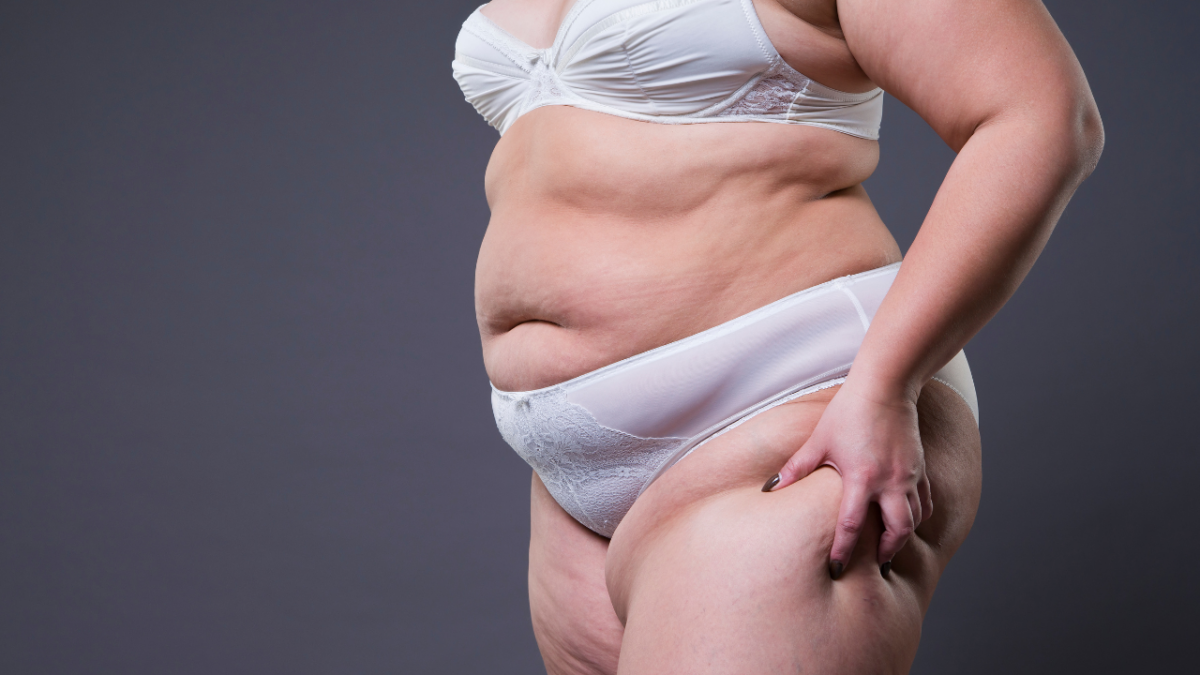Why You Might Be Gaining Weight During Menopause (and What to Do About It)

What’s with the Extra Pounds? Navigating Weight Gain During Menopause
You’re eating the same, working out like you always did, but your jeans are suddenly feeling snug. Welcome to one of the most frustrating realities of menopause. For many women, weight gain seems to sneak in as they hit midlife—and it doesn’t go away as easily as it used to. But here’s the good news: once you know why it’s happening, you can make tweaks to feel more in control of your body again.
Let’s break down the causes of weight gain during menopause and how to manage it without driving yourself crazy.
Why Does Menopause Cause Weight Gain?
1. Hormonal Changes
Estrogen plays a key role in regulating metabolism and fat distribution. During perimenopause and menopause, estrogen levels drop, which can encourage your body to store more fat, especially around the abdomen. Lower estrogen also slows down calorie burn. So, even if you’re doing the same workouts and eating the same portions, your metabolism might not keep up like it used to.
2. Muscle Loss (Sarcopenia)
As we age, we naturally lose muscle mass—about 3–8% every decade after 30. Muscle burns more calories than fat, so when you lose muscle, your metabolism slows down. During menopause, this muscle loss accelerates, making it harder to keep weight off.
3. Insulin Sensitivity Drops
Fluctuating hormones during menopause can lead to changes in insulin sensitivity. This makes it easier for your body to store fat and harder to burn glucose, leading to weight gain even if your diet hasn’t changed.
4. Stress and Cortisol
Life changes like empty nests, work stress, or caregiving responsibilities can lead to more stress during midlife. When you’re stressed, your body pumps out cortisol—a hormone that encourages fat storage, particularly around your belly.
5. Sleep Problems
Hot flashes and night sweats don’t exactly make for restful sleep. Poor sleep disrupts hunger hormones like ghrelin and leptin, making you crave carbs and sugary foods while decreasing your ability to feel full.
What You Can Do About Menopausal Weight Gain
Here’s the silver lining: Weight gain during menopause isn’t inevitable. With some strategic lifestyle changes, you can feel strong, healthy, and more comfortable in your body.
1. Strength Training: Build Muscle to Boost Metabolism
Lifting weights helps you maintain and even rebuild muscle, which boosts your resting metabolism. Aim for 2-3 strength training sessions a week, focusing on compound movements like squats, lunges, and presses. Don’t worry—lifting weights won’t bulk you up; it’ll make you stronger and leaner.
2. Prioritize Protein at Every Meal
Since muscle mass declines during menopause, you’ll need more protein to maintain it. Make sure to include a source of protein with every meal—think eggs, chicken, tofu, fish, or legumes. This will also keep you full longer and prevent mindless snacking.
3. Dial Back on Processed Carbs
Menopause can make it harder for your body to process sugar and refined carbs efficiently. Swap out white bread and sweets for whole grains, fruits, and vegetables to keep insulin levels in check and avoid blood sugar crashes.
4. Get Moving (Even When You Don’t Feel Like It)
Incorporating movement into your daily routine can prevent weight gain. It doesn’t have to be a high-intensity workout—walking, yoga, or even gardening counts. Aim for at least 30 minutes a day to keep your metabolism ticking. Bonus points if you can sneak in a walk after meals to help control blood sugar levels.
5. Manage Stress with Mindful Activities
Since stress can encourage weight gain, try incorporating stress-busting habits like meditation, yoga, or deep breathing exercises. These small changes can lower cortisol levels, helping you avoid that stubborn belly fat.
6. Prioritize Sleep Like a Boss
Good sleep hygiene can improve everything from metabolism to mood. Try setting a consistent bedtime, creating a relaxing bedtime routine, and cutting out screens before bed. If night sweats are a problem, invest in moisture-wicking pajamas and cooling sheets.
7. Stay Hydrated
Hormonal changes can leave you feeling bloated or puffy. Drinking plenty of water can flush out excess sodium and improve digestion, keeping you feeling lighter.
8. Consider Hormone Replacement Therapy (HRT)
For some women, HRT can help ease symptoms of menopause, including weight gain. Talk to your doctor to see if it’s a good fit for you.
Takeaway
Gaining weight during menopause can feel frustrating, but it’s important to remember that your body is going through a natural shift. Instead of chasing your old weight, focus on new health goals that feel attainable and sustainable. With a little patience and a few strategic changes, you’ll feel better in your body, no matter what the scale says.
